Honor Award
Petrochemical America
Richard Misrach & Kate Orff, ASLA
Publisher: Aperture Press
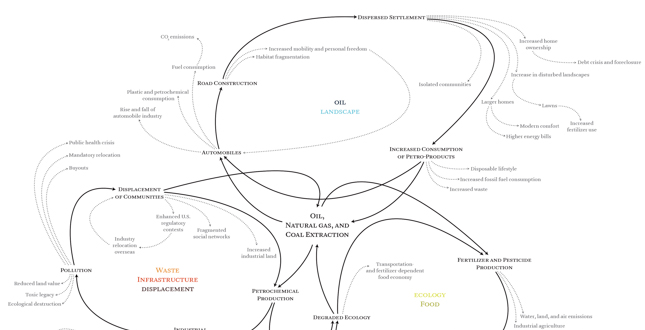
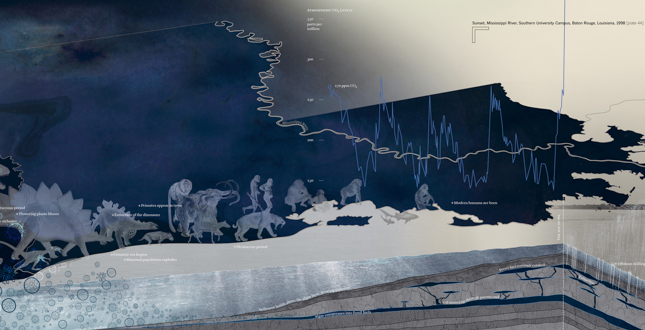
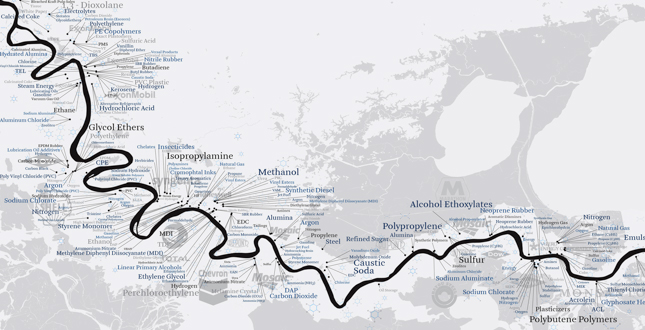
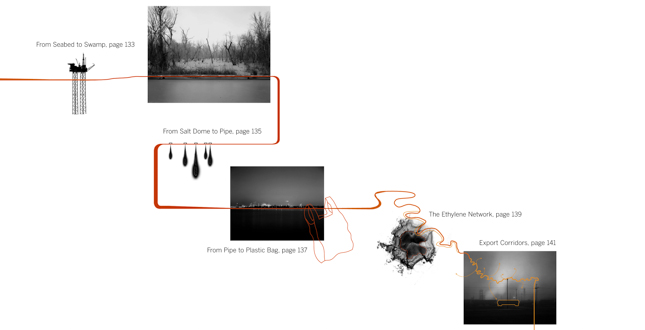 Close Me!
Close Me!Chapter 2 Infrastructure Throughline Chapter Map.
Download Hi-Res ImageImage: Richard Misrach
Image 4 of 14
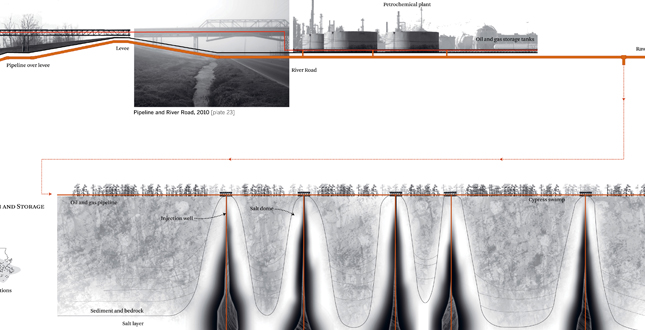
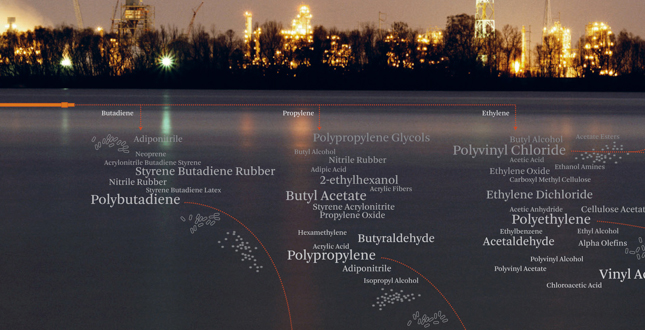
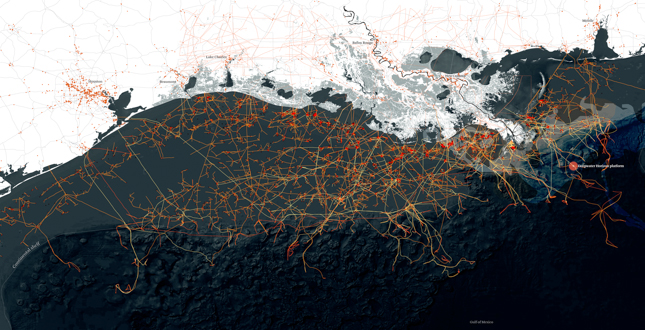
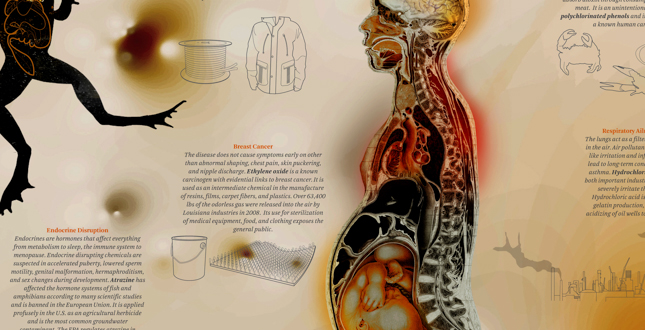
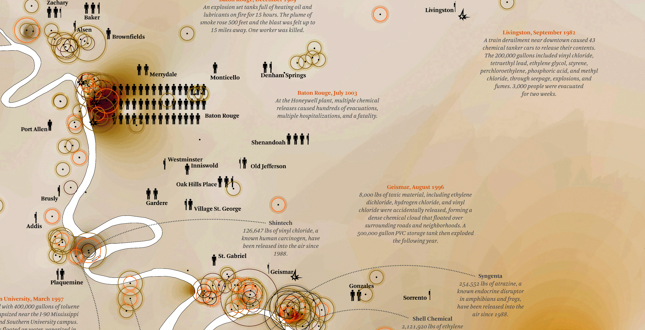
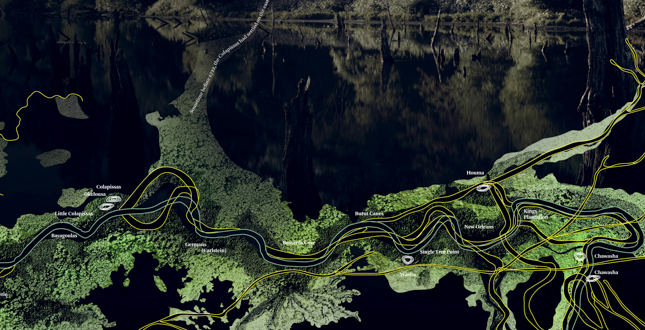
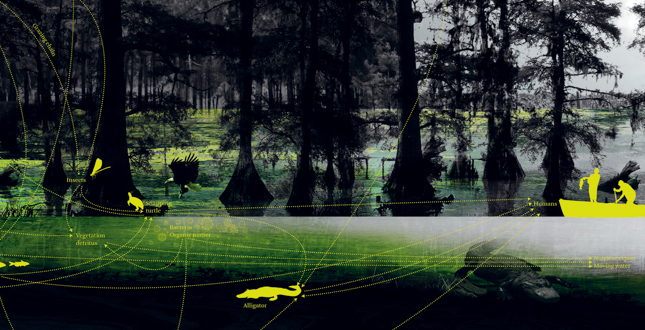
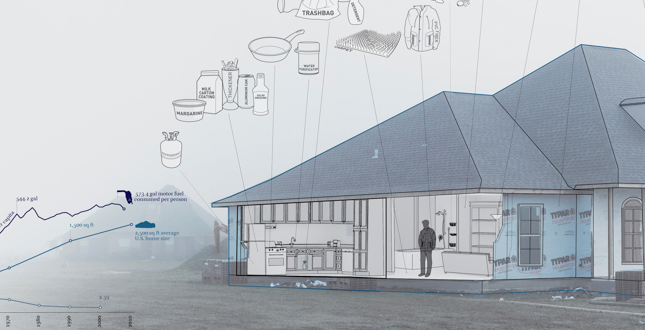 Close Me!
Close Me!Detail: Bigger, Farther, Filled with More Stuff.
Download Hi-Res ImageImage: Richard Misrach
Image 12 of 14
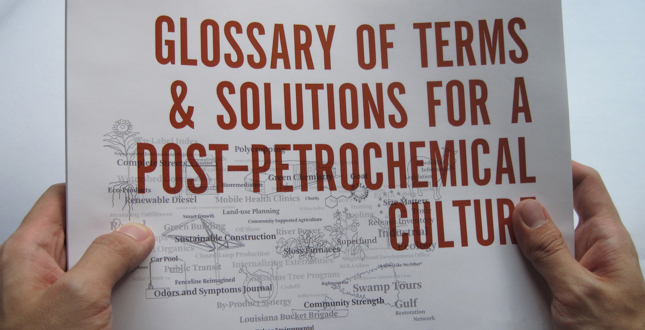 Close Me!
Close Me!Image of Glossary Insert, located in back cover sleeve .
Download Hi-Res ImageImage: Richard Misrach
Image 13 of 14
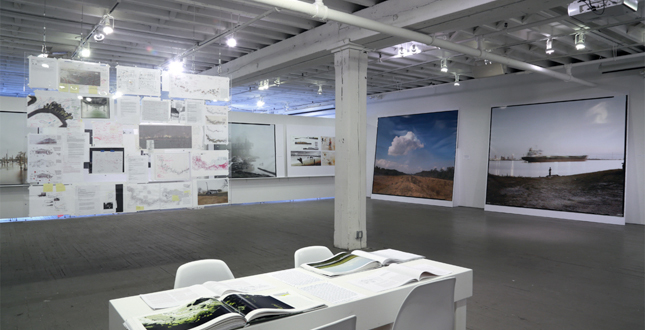 Close Me!
Close Me!Image of exhibition, “Petrochemical America: Project Room” .
Download Hi-Res ImageImage: Richard Misrach
Image 14 of 14
Project Statement
This unprecedented book represents a joint photography, research, and design approach to visualizing and mapping the landscape through a detailed focus on one place: Louisiana’s chemical corridor along the lower Mississippi River. The book integrates photographs, captions, drawings, diagrams, and an extended essay, reveals the broader interrelated landscape systems and processes that comprise the American landscape in the age of oil, and provides a broader template for understanding, imagining, and acting to change it.
Project Narrative
—2012 Professional Awards Jury
This project represents a breakthrough in communicating the processes, cycles, and complexity of the landscape by integrating research, photography, drawing and data into a larger narrative structure. In addition, a “Glossary” was developed to shine a spotlight on people, groups, and governmental actions that are making change. The project has taken the form of a book and travelling exhibition that is coupled with local workshops and lectures.
During the course of the study, a complex reciprocity between the eye and the hand emerged to create a new ecology of seeing, analyzing, projecting, shooting, working and reworking, focused on the constructed landscapes that characterize the lower Mississippi. Misrach’s photographs of these compromised, beautiful, and toxic, suspended-state conditions in “Cancer Alley” featured in Part One provoke a desire to comprehend the reality on the ground and to engage politically, but the paths of action are less clear. Part Two, which includes both the Ecological Atlas and the Glossary, attempts to address these impulses and ideas. The Atlas aims to magnify the effects of traditional photography and drawing as conceptual media, overlaying the research-oriented disciplines of anthropology, history, chemistry, and public health to develop a series of stories and questions called Throughlines. These speculative drawings trace the economic and ecological processes that have shaped the physical landscape and begin to unravel Misrach’s photographs in space and time. We have experimented with a new form of narrative cartography that maps the civilization-wide network of interdependent relationships that link industrial sites, neighborhoods, lawns, and river views. They integrate illustration, imaginative projection and data to visualize how, collectively, we have made (and could re-imagine) the American landscape.
What the next wave of economic and ecological transformation will bring in the form of post-oil energy scenarios, sea level rise, land loss, public health crises, and loss of biodiversity has yet to be collectively imagined. Framing the interrelated systems and everyday scenarios that comprise Petrochemical America is only the first step, then. We aim to put the possibility of transforming these processes and places back within reach, celebrating their complexity and uncertainty and pulling industry and economy into a deeper cultural and ecological discourse.
Ultimately, the project is an exploration and expansion of both disciplines: how can photography and landscape architecture generate change, and how can design (rather than responding to a given program in the typical client-consultant relationship) choreograph public and private interests to remake a place.
The book was printed in the U.S.A with soy based ink on recycled paper and had an initial run of 4,000 copies. The exhibition is traveling to 6 locations around the United States.
Project Resources
Lead Designer
Richard Misrach – Photography
Kate Orff – Essays and Throughlines
Landscape Architect of Record
Scape / Landscape Architecture PLLC
Research & Design Associates
Ben Abelman, Gena Wirth, Zach Youngerman
Additional Research and Drawing Assistance
Therese Diede, Robin Fitzgerald-Green, Miriam Grunfeld, Kelly Hitzing, Petra Jarolimova, Emily Johnson, Kara Lanahan, Ashley Ludwig, Idan Naor, Angela Soong, Anne Weber, Cody Zalk, Helen Kongsgaard
Publisher
Aperture Press
Leslie Martin
Melissa Harris
Book Layout
Bob Aufuldish
Production & Printing
Sue Medlicott, The Studley Press




